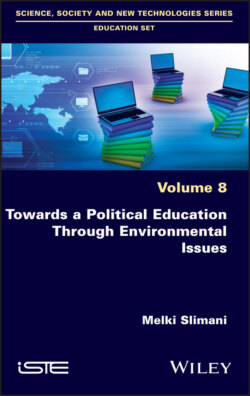Читать книгу Towards a Political Education Through Environmental Issues - Melki Slimani - Страница 14
1.2. The political and the anti-political
ОглавлениеAccording to Howard (2010), the history of human political thought can be traced back to two trends that originated from the first political experience of human society: democratic Athenian city.
The first trend constitutes a descending line of Platonic thought, itself interpreted as a reaction to the defeat of Athenian democracy. It is an anti-political trend that took shape at different moments in human social history. Christian theological thought fed this current, with Augustine and Luther as outstanding examples in the 5th and 15th centuries. Hobbes’ philosophy in the 17th century is representative of this trend in political philosophy, which culminated towards the end of the 18th century and during the 19th century in an anti-political project that reabsorbed politics into a logic of historical progression playing the role of a source of legitimacy anchored in a type of reasoning rooted in economics.
The second trend is a line of ideas descending from Aristotelian thought, itself based on the experience of Athenian democracy, which crossed Christian theological thought with Thomas in the 13th century and Calvin in the 16th century, as well as philosophical thought of the 17th century with Locke.
A third hybrid trend, exhausting its references from the experience of the Republic of Rome, manifested itself in the philosophical thought of Machiavelli (15th century) and Rousseau (18th century). It constituted a reference for the French Revolution and for the American Revolution. The latter invented the political form of a republican democracy, showing its resistance to the anti-political forms that quickly attenuated the French Democratic Republic by the institution of an anti-political project. The latter reigned during the 19th century until the outbreak of the war in 1914.
The 20th century was one of a new vitality of political thought through the installation of a conflict of interpretation of the democratic paradigm of political legitimacy. The debate was between new forms and orientations of totalitarian, liberal or social democracy.
In the remainder of this chapter, the political/anti-political trend in EDIs is explored through the following:
– a discussion of the conceptualization of the political field with its symbolic dimension (the political) and its formal dimension (politics) of Lefort by Gachkov and Blokker. This discussion makes it possible to specify a set of expressions covering the political field: “power”, “depoliticization”, “democracy”, “participation”, “citizenship”, “domination”, “justice” and “liberalism”;
– the classification2 of EDIs into six metathemes: “environmental politics and environmental change”, “environmental ethics”, “agrifood”, “sustainable development”, “environmental technologies and management” and “transitions”, to explore their political content via the Internet;
– the association of EDI metathemes with expressions from political/anti-political or politicized/depoliticized discussions in French and English in order to collect a relevant corpus on the Internet;
– a thorough reading of the collected corpus.
This chapter will help us to identify and characterize the political/anti-political trend of EDIs.
